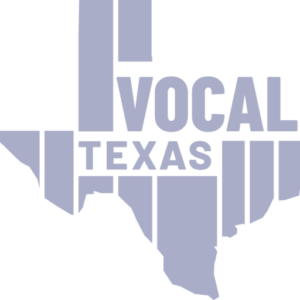
HOUSING ACCESS NOW:
Stop Discrimination and Start Affordability
Austin was recently touted as leading the nation in affordable housing construction in 2024, but we still have more than 6,000 people living in shelters and sleeping on the streets. Why? Unhoused Austinites have been given little chance for permanent housing because enough affordable housing isn’t built for the lowest income brackets and housing developments can deny applicants based on criminal history, eviction history and lack of income.
THE PROBLEM
Homelessness and Incarceration
The U.S. incarcerates more people than anywhere in the world, and Austin is no different. In Travis County each year, approximately 40,000 people exit jail or prison and return to our community. Once released, people with criminal histories experience rampant barriers and discrimination upon reentry — called collateral consequences — including being barred from housing, employment, education, voting, and even dating apps. Many people without means or family support are released directly to homelessness. In fact, formerly incarcerated people are almost ten times more likely to experience homelessness than the general public.
Because people of color and poor people in our communities are targeted and criminalized at the highest rates by law enforcement, we see alarming disparities in who is arrested, convicted and released with a criminal history. In fact, snapshots of the Travis County Jail population in 2023 reveal that 31% were experiencing homelessness before arrest, and of those individuals, 67% were people of color.
In 2021, the Travis County Reentry Roundtable reported that barriers to affordable housing were the top barrier to reentry by people returning to Austin. In 2023, data from ECHO’s HMIS system showed that 75% of people experiencing homelessness had been in contact with the criminal legal system, and 50% reported having “been denied access to employment and/or housing [or] opted out of applying for employment and/or housing” due to their criminal background. Because being street homeless is illegal in Texas, homelessness and criminal history become a never ending cycle.
“When I got approved for a housing voucher, I was so excited at the thought of getting housed. Little did I know that I was about to face even more barriers because of my criminal background. My case manager gave me lists of properties to apply to and I was denied from all of them.”
– Alfredo Reyes Jr., VOCAL-TX GROW Organizer
Lack of deeply affordable housing
In addition to barriers to access housing, Austin lacks sufficient housing options that people who are unhoused can afford. The dearth of deeply affordable units is not a new issue; in 2014 the City identified a shortage of 48,000 deeply affordable rental units (primarily those renting for less than $500/month) for renters earning less than $25,000 per year. In 2017, Austin adopted a Strategic Housing Blueprint, which included plans to build 20,000 homes that people earning less than $25,000 could afford (30% MFI), and 1,000 new permanent supportive housing (PSH) units. However, by 2022 — halfway through their 10 year timeline — developers had only built 363 30% MFI units, and only 321 PSH units for people exiting homelessness. Three years later, some progress has been made and Austin has been named the top city in the country for affordable housing. And although that may be true for higher income brackets, we are still woefully behind our affordable housing goals for people who are unhoused and/or who make less than $25,000 per year.
THE SOLUTION
Building on the work of the Travis County Reentry Roundtable, Housing Works Austin, Austin Justice Coalition, and many others, VOCAL-TX recommends the following:
1. Remove remaining barriers to affordable housing that discriminate against poor people with criminal records.
We can’t end homelessness by excluding certain groups. Although progress has been at the local level on criminal history screening criteria, we don’t have a full picture of how many people are denied affordable housing and for which reasons. The City of Austin does not require affordable housing programs to report data on applicant denials and the reason for those denials. In addition, the City does not have a standardized appeals process for applicants who are denied; each development has their own process.
Recommendations to reduce barriers such as income requirements, eviction history and criminal history screening:
- Offer incentives to developers bidding on new contracts if they agree to apply the updated RHDA lease addendum to all existing, older properties;
- Require affordable housing programs to report data on applicant denials, including reason for denials; and
- Create a more accessible and standardized appeals process and an independent appeals committee to review applicants’ appeals.
2. Create more deeply affordable housing units for people exiting homelessness.
In 2017, the City committed to building 20,000 units for people earning 30% MFI or below. To date, very few of those units have been built, contributing to housing insecurity for the lowest income Austinites, including people experiencing homelessness. Furthermore, the City used to require affordable housing projects to include a minimum of units for people in the homeless Continuum of Care (CoC) system, but ended that program when there were challenges.
Recommendations to increase the number of housing units accessible to people exiting homelessness:
- Increase the number of 30% MFI and below units being built in affordable housing developments now and those built with 2026 bond dollars, reaching at least the 20,000 unit goal by 2027.
- Provide quarterly updates on the development of affordable housing units, broken down by MFI levels.
- Require projects funded by affordable bond dollars to set aside a percentage or a minimum of units for people exiting homelessness, ensuring supportive services are in place if needed.
- Protect existing low-income rental properties, including those privately run.

